Summary: This article will provide you with the steps to eliminate “Files too large for Recycle Bin” error and recover permanently large deleted files from the Recycle Bin on Windows 10, 8, 7.
Whenever you delete something, it moves to the Recycle Bin folder and this operation is done using “Delete” key or by right clicking on the item to be removed and then selecting “Delete” option.
However, when you use “Delete” key to remove some large files folders that are more than the allocated size of the Recycle Bin folder, then there’s a prompt showing that: “This file is too big to recycle” or “This Folder is too big to recycle, do you want to permanently delete it?”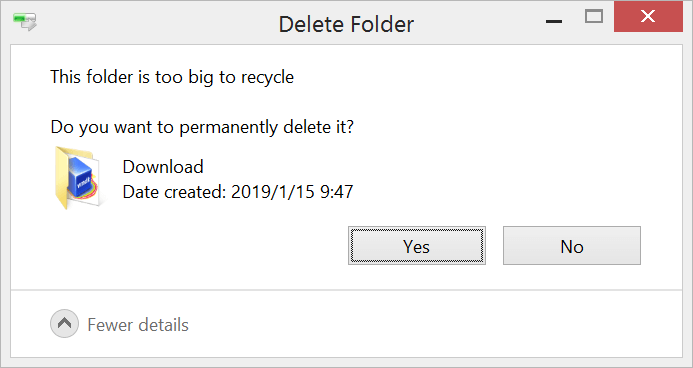
Which means, the data doesn’t move to the Recycle Bin folder, instead; it bypasses the Recycle Bin and gets deleted permanently if you click on “Yes” Button.
Assume that you were working on a large PSD files that are more than 4GB and you deleted it accidentally. How to restore deleted files that are too large for Recycle Bin? Relax; you’ll be covered with the practical solutions showing as below.
Table of Contents
What are the causes of “Files too large for Recycle Bin” error to occur?
There are two prime reasons for “Files too large for Recycle Bin” error to take place.
- Allocation size of the Recycle Bin: when you attempt to delete some file and see the message “Files too large for Recycle Bin”, it is due to the large size of the data to be removed as compared to the allocated size of the Recycle bin.
- Too many files in the Recycle Bin: Another reason for this error message to occur is, that there can be too many files already in the Recycle bin folder due to which there is not much free memory space available to accommodate even a single file.
Pro Tips: If you use “shift+delete” combination to remove files from your device, it will get deleted permanently without being moved to the Recycle Bin. Take the same solutions as below to recover deleted files using Bitwar Data Recovery Software now!
How to Recover Permanently Deleted Files from the Recycle Bin
Step1: Open the official website “https://www.r-datarecovery.com” and click on “Download” to download the software, after downloading the Bitwar free data recovery software, and then install it on your device.
Step2: Launch the recovery software and then select the “Recycle Bin Recovery” option.
Step3: Choose the file type you wish to retrieve and click on the “Next” button.
Step4: Now, you can preview the files which you shortlisted for the recovery, press on the “Recover” option to start the recovery process.
Step5: Once recovery is completed, save extracted files/data at a safe location; avoid saving recovered data back to the same location where you lost it from.
Following these quick and simple steps will help you restore all your data.
Practical solutions to overcome “Files too large for Recycle Bin”
Solution 1: by removing unwanted files from the Recycle Bin:
As mentioned above in the article, the reason for the “Files too large for Recycle Bin” error to occur is due to unavailability of sufficient space in the Recycle Bin folder because of the combined size of all the files already in the Recycle bin.
Step1: Open Recycle Bin and right click on the file(s) you want to delete.
Step2: After clicking right on the desired files, you will get an option to “Delete”, click on it to delete the selected item(s).
If you wish to delete all the files in the Recycle Bin, right click on the Recycle Bin icon located on your computer and select “empty recycle bin” option.
Solution 2: by increasing the allocation size of the Recycle Bin:
Step1: Select “Properties” by clicking right on the Recycle Bin icon on your computer.
Step2: From the Recycle Bin Properties, select the drive from where you are trying to delete files and encountering a prompt.
Step3: Now, on the same page, under “Settings for selected location” is Custom size>>Maximum size (MB), assign more space (e.g. 3072) to the Recycle Bin folder of the selected drive by inputting the desired size in the field provided.
Step4: Click on the “Apply” button to save the changes made.
The above stated two solutions will help in fixing the capacity of the Recycle Bin folder, which will prevent the “Files too large for Recycle Bin” error.
Why to use Bitwar Data Recovery Software?
Anyone can encounter the issue pertaining to “Files too large for Recycle Bin”, depending upon the above-stated reasons; you may apply any of above solutions to eliminate the error message.
Nevertheless, if your data lost due to the below scenarios, use Bitwar Data Recovery Software to recover what you need:
- Delete files using Shift+delete.
- Files lost after emptying the Recycle Bin / Deleted file not in recycle bin.
- Accidentally deleted the files that are too large for Recycle Bin.
- Files Deleted by virus or Trojan.
- Formatted the data on your internal or external hard drive, USB flash drive, SD memory cards.
- Partition lost and then the data stored on it becomes inaccessible.
- Improperly removed the flash drive, SD card and then the drive shown as RAW disk/0 Bytes.
- Improper removed the external hard drive, flash drive, SD card, and then the system always prompt you the message “You need to format the disk in drive before you can use it.”
- USB device not recognized.
- Recover Files Lost by Ctrl+Z
Supported File Types:
- Document
- Photo
- Video
- Audio
- Archive file
Pro Tips: As professional data recovery software, Bitwar offers many other data recovery solutions that help you to eliminate the data loss concerns, simply visit our Tutorial or Search related keywords. Or you email us to [email protected] to get support from our technical attendant.


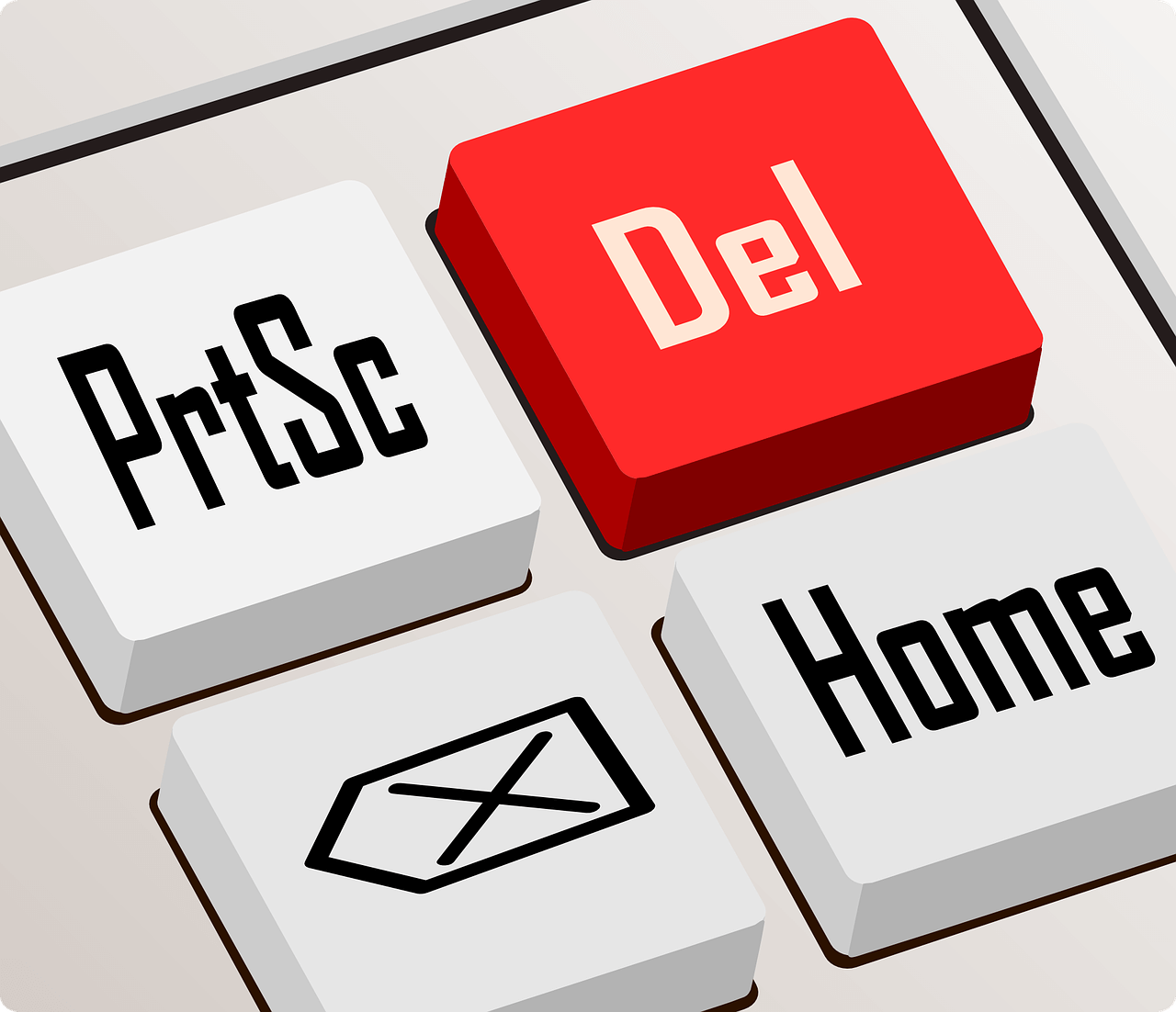
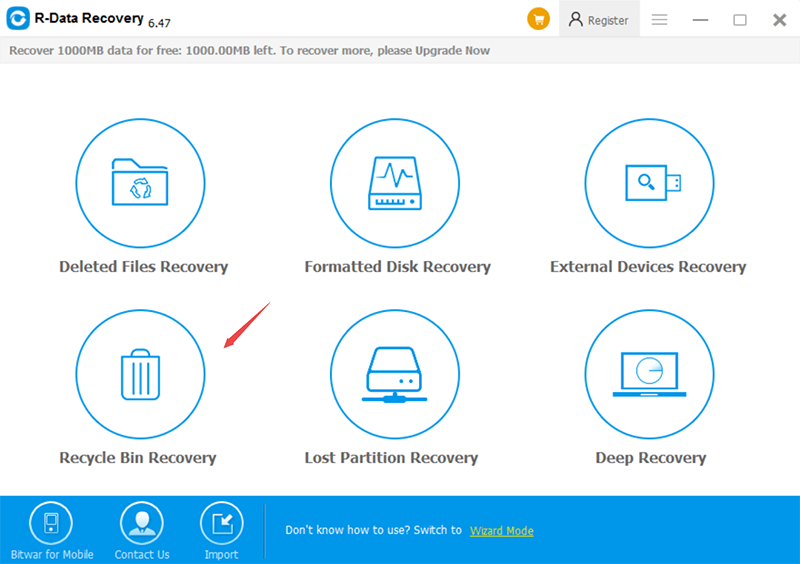
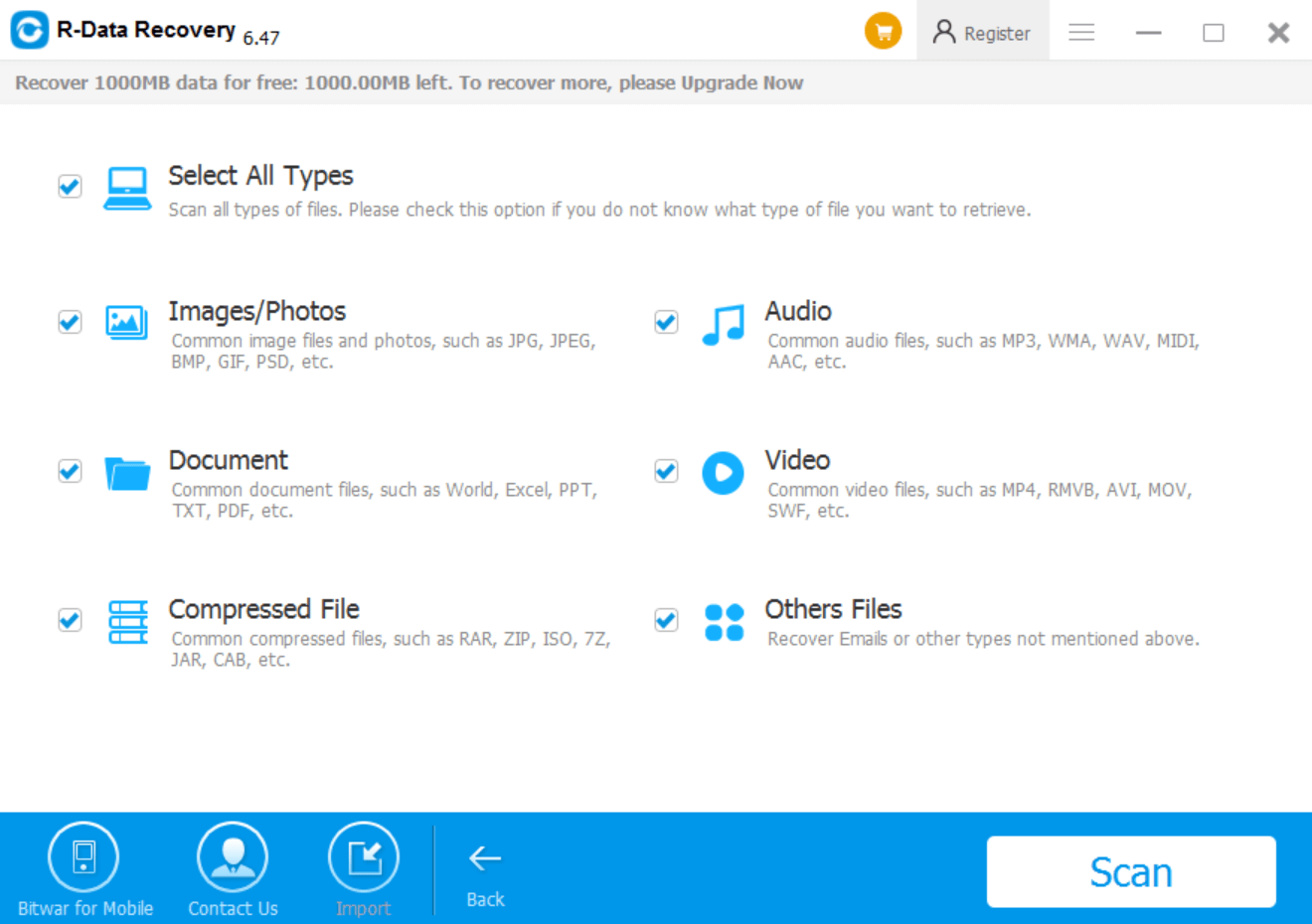
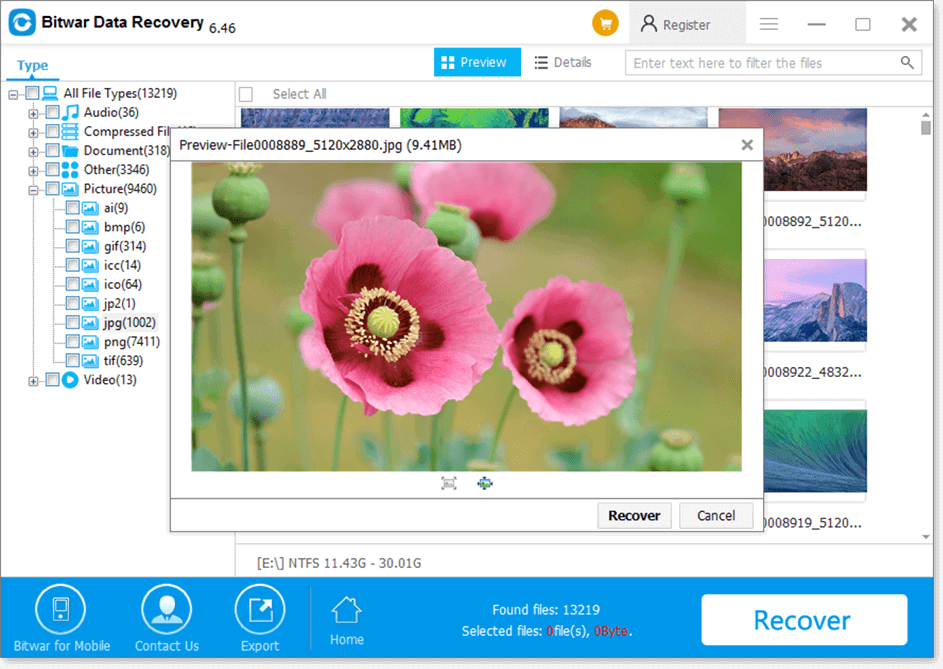
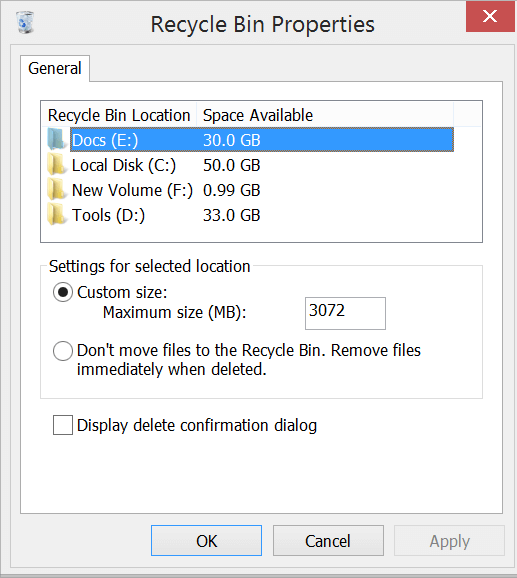



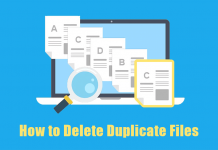
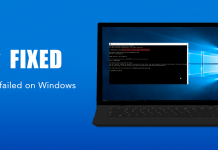







WOW Not only did I fix my issue using Bitwar but also learned that I can change the capacity of my recycle bin!! I Love how simple are these tutorials, they are made for everybody and that's great, most of the stuff I found it's made for like people who already know about computers, thanks for the great job!
Hello, Sammy, that's nice to hear that our tutorial is doing its job to help you get your problem fixed, and if you still have the questions or need our help, please contact us.
Comments are closed.